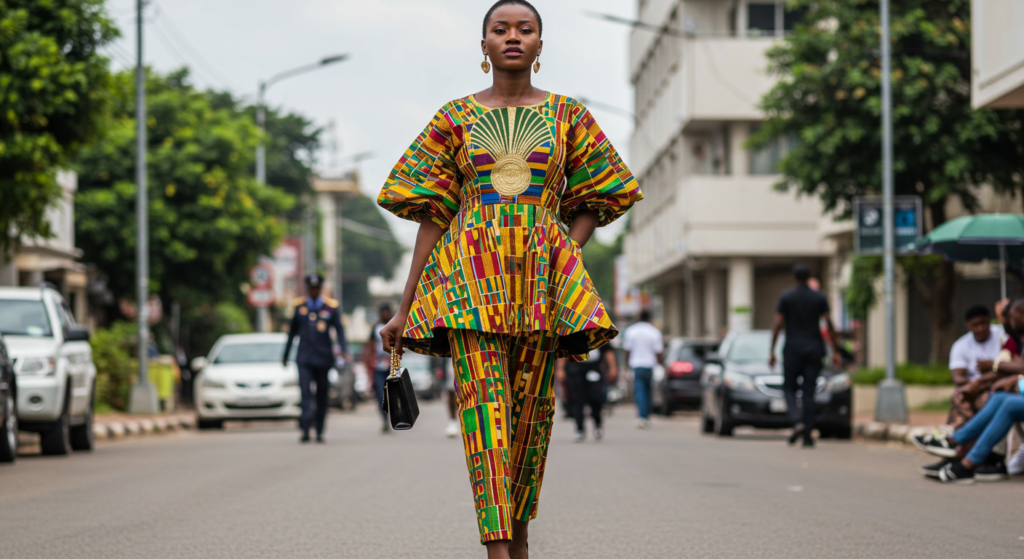
Fashion has always been more than fabric stitched together—it’s an evolving expression of culture, creativity, and identity. From the intricate garments of ancient civilizations to the digital wardrobes of today, the world of fashion reflects how societies grow, adapt, and communicate. It shapes how we see ourselves and how others perceive us.
In the 21st century, fashion is no longer confined to seasonal collections or luxury runways. It has become a conversation—a dynamic blend of art, innovation, and personal storytelling. The modern fashion landscape is fluid, diverse, and deeply connected to global shifts in culture, technology, and sustainability.
The Cultural Power of Fashion
Every outfit tells a story. Throughout history, clothing has symbolized power, belief, and belonging. Ancient Egyptian linen garments reflected purity and status, while Victorian corsets emphasized societal ideals of femininity. In the 1960s, bold prints and miniskirts became symbols of rebellion and liberation.
Fashion’s cultural significance continues today. Designers from across the world draw inspiration from heritage, politics, and social change. Streetwear blends with couture, traditional fabrics are reimagined through modern silhouettes, and gender-neutral fashion challenges conventional norms. The beauty of fashion lies in its constant reinvention—it borrows from the past while shaping the future.
As highlighted by Urban Splatter, fashion mirrors the rhythm of society, adapting to new mindsets, technologies, and values. What once existed as a statement of wealth has transformed into a universal language of creativity.
The Digital Revolution in Fashion
Technology has radically reshaped the fashion industry. From design to marketing, the digital revolution has redefined how trends emerge and spread. Social media platforms like Instagram and TikTok have replaced traditional magazines as the trendsetters of style. A single viral post can now set off a global fashion movement overnight.
Fashion brands are also embracing virtual innovation. 3D design tools, AI-generated models, and augmented reality try-ons are becoming mainstream. Designers can now visualize entire collections digitally before producing physical garments. This not only saves time and resources but also opens doors for more sustainable practices.
Even fashion shows are evolving. Digital runways allow audiences from around the world to experience collections simultaneously, breaking the exclusivity barrier that once defined high fashion. This new accessibility empowers smaller designers and independent creators to showcase their work on a global scale.
Sustainability and Conscious Consumption
For decades, fashion was synonymous with excess—fast production, mass consumption, and enormous waste. But in recent years, a major shift has begun. Sustainability is no longer a niche concern; it’s at the center of modern fashion discourse.
Today’s consumers are more aware of the environmental and ethical costs behind what they wear. They demand transparency about materials, labor practices, and the carbon footprint of brands. This has led to the rise of slow fashion, thrift culture, and eco-conscious innovation.
Recycled fabrics, plant-based dyes, and biodegradable materials are becoming industry staples. Brands are rethinking their design cycles, emphasizing durability and timelessness over trend-chasing. The message is clear: fashion can be beautiful without being wasteful.
The industry is also exploring circular models—where garments are reused, resold, or repurposed rather than discarded. This mindset represents a complete cultural shift from disposable fashion to meaningful design.
Fashion as a Form of Self-Expression
Fashion’s greatest strength lies in its ability to reflect individuality. In a world that often celebrates conformity, personal style gives people a voice. The clothes we wear are extensions of who we are—our moods, beliefs, and ambitions.
In the age of individuality, people are rejecting prescriptive trends in favor of authenticity. Mixing vintage with modern, high-end with streetwear, and minimalist with maximalist has become the norm. Fashion is no longer about fitting in—it’s about standing out in a way that feels true to oneself.
Social movements have also played a vital role in shaping this new identity-driven fashion. The rise of gender-fluid clothing, body positivity, and inclusivity in campaigns and runway shows reflect a growing understanding that style belongs to everyone. Fashion’s new mantra is simple yet powerful: representation matters.
The Influence of Streetwear and Pop Culture
Streetwear has emerged as one of the most influential movements of our time. What began as a countercultural style rooted in skate and hip-hop communities is now an integral part of high fashion. Sneakers, hoodies, and graphic tees have found their place alongside luxury gowns and tailored suits on global runways.
This blending of luxury and street aesthetics represents a larger cultural shift—one that values comfort, identity, and authenticity over rigid elegance. Collaborations between major fashion houses and streetwear brands symbolize this balance between exclusivity and accessibility.
Pop culture further amplifies fashion’s influence. From musicians launching their own clothing lines to celebrities shaping seasonal trends, fashion is now inseparable from entertainment. Social media allows fans to instantly replicate or reinterpret the looks of their favorite icons, creating a constantly evolving dialogue between culture and style.
The Role of Innovation in Design
Innovation in fashion is not limited to materials or marketing—it’s transforming how we imagine clothing itself. Smart textiles, responsive fabrics, and wearable technology are pushing the boundaries of what fashion can do. Imagine jackets that adjust temperature based on the weather, or fabrics that monitor fitness and posture—these concepts are already becoming reality.
Digital fashion is another fascinating development. Virtual garments designed for avatars or social media profiles are gaining traction in both gaming and online communities. This evolution blurs the line between physical and digital fashion, introducing sustainability through non-physical creativity.
Exploring new design territories also means revisiting craftsmanship. Hand embroidery, weaving, and other traditional techniques are being revived and fused with futuristic aesthetics. This harmony between innovation and tradition defines the soul of modern design.
Professionals who follow latest fashion insights understand how quickly these technological and cultural factors are reshaping the industry. Staying ahead requires both creativity and adaptability—a willingness to evolve without losing authenticity.
The Business of Fashion
Behind every fashion statement lies a powerful global industry. Fashion contributes billions to the world economy, supporting millions of jobs—from designers and artisans to marketers and digital strategists. However, as the industry grows, so does the responsibility to ensure fair wages, ethical sourcing, and inclusive representation.
E-commerce has also changed the business model dramatically. Online boutiques, dropshipping brands, and direct-to-consumer models have reduced barriers to entry. Emerging designers can now build brands independently, reaching customers worldwide without relying on major retail networks.
The digital marketplace has given rise to a new kind of entrepreneur—creative, data-driven, and socially aware. These modern fashion leaders understand that business success today depends not only on aesthetics but also on ethics and purpose.
The Future of Fashion
Fashion’s future will be defined by sustainability, technology, and inclusivity. As we move deeper into a digital-first world, physical and virtual fashion will coexist. Designers will continue blending artistry with responsibility, creating styles that are both innovative and ethical.
Fashion is no longer just about trends—it’s about meaning. The next era of fashion will celebrate individuality while addressing global issues like climate change and social justice. In doing so, it will reaffirm its place not just as an industry, but as an essential part of human culture.







